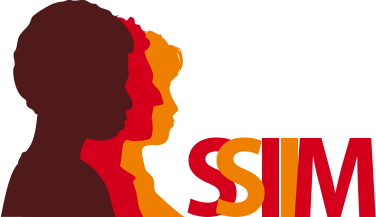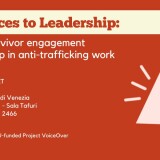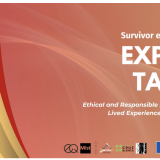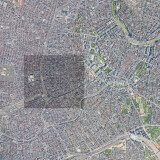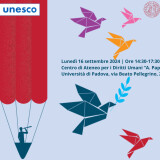BIP Wien – Caring for the city: placemaking in the interplay of urban development and tourism
Here below some preliminary information and the draft programme. Call for application for the fellowships will open by mid January 2025
DRAFT PROGRAMME
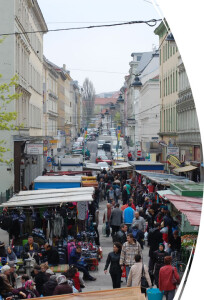 Blended Intensive Programmes (BIP) are a new funding scheme under the Erasmus+ Programme. BIP are international learning activities combining online seminars and a short physical mobility, designed around a “challenge-based” approach.
Blended Intensive Programmes (BIP) are a new funding scheme under the Erasmus+ Programme. BIP are international learning activities combining online seminars and a short physical mobility, designed around a “challenge-based” approach.
The BIP “Caring for the city: Placemaking in the Interplay of Urban Development and Tourism” is structured into three phases: pre-workshop, workshop, and post-workshop activities. The pre-workshop seminars, scheduled to take place online March 6 and 10, 2025, will introduce the case study and expose participants to diverse theoretical and methodological frameworks. Parallely, preparatory activities conducted within each participating institutions will facilitate the construction of a network of connections among students and topics, laying the groundwork for effective collective work during the onsite workshop.
The work, initially developed remotely, will culminate in a one-week onsite workshop in Vienna (March, 17-21, 2025). This intensive workshop will bring together teachers and students in multinational teams to devise urban strategies. Activities will include lectures, collaborative thematic hands-on labs and study visits to neighborhoods. Professors and students will also interact with local stakeholders to learn about and discuss the specific urban challenges of each context under study.
After the onsite workshop, the learning process will continue and be further developed by each group. This phase will culminate in a final online seminar on March 28, 2025 during which the groups will present and submit their completed work.
Download here >> Key infos and Agenda (draft, some details might be subject to minor changes/adjustements)
PARTNER UNIVERSITIES
- FHWien der WKW, University of Applied Sciences for Management & Communication, Austria (host institution)
- ISCTE – Instituto Universitario de Lisboa, Portugal
- Bialystok University of Technology, Bialystok, Poland
- Inholland University of Applied Sciences, The Netherlands
- University Iuav of Venice, Italy
LOCAL PARTNERS
This initiative is supported by leading organizations that bridge academic learning and effective-urban policies/practice:
- Dialog+: Expertise in community engagement and urban transformation
- Agenda21: Focus on sustainable and participatory urban planning
- Vienna Tourist Board: Strategic insights into balancing tourism development with community well-being
- MA18 (Vienna Urban Development and Planning): Urban planning expertise, providing insights into city policies and long-term strategies.
WHO CAN ATTEND
The BIP will involve up to 40 students from the partner universities, which are based in Austria, Italy, Portugal, Poland, and The Netherlans. Up to 5 Iuav students will be selected to participate to this workshop. All the activities will be carried out in English, hence fluent speaking and understanding skills are required, as well as basic writing skills (for the work to be delivered)!!!
For the University Iuav of Venice, eligible students are those enrolled in one of the following tracks:
- magistrale in Architettura and MA in Architecture
- Magistrale in Urbanistica e pianificazione del territorio (MS in Urban Planning for Transition + Urbanistica e Pianificazione per la Transizione)
CREDITS
For Iuav students the participation to the workshop will be recognized as intensive workshop and will be granted with 6 ECTS (CFU type D). In order to obtain these credits, participation to all the online and on-site working days is required, as well as the delivery of a final group work that will be explained and detailed along the process.
PROGRAM STRUCTURE
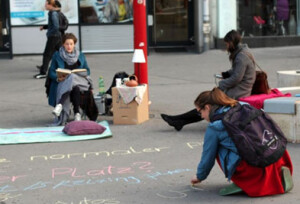 The Erasmus+ BIP “Caring for the city: placemaking in the interplay of urban development and tourism” represents an opportunity to reimagine urban spaces through collaborative research, sustainable placemaking, and tactical urbanism. By addressing real-urban challenges in Vienna, participants will develop actionable solutions aimed at contributing to more inclusive, resilient, and vibrant cities for both permanent and temporary residents.
The Erasmus+ BIP “Caring for the city: placemaking in the interplay of urban development and tourism” represents an opportunity to reimagine urban spaces through collaborative research, sustainable placemaking, and tactical urbanism. By addressing real-urban challenges in Vienna, participants will develop actionable solutions aimed at contributing to more inclusive, resilient, and vibrant cities for both permanent and temporary residents.
The field workshop will bring together academic and practical expertise, featuring collaboration with key local partners in Wien, including Dialog+, Agenda21, the Vienna Tourism Board, and MA18 (Vienna Urban Development and Planning). Students will engage in observation and planning activities, guided by these partners, to investigate and propose solutions to real-world urban challenges.
Students will collaborate in international and interdisciplinary groups to address challenges in four key target areas in Vienna:
- Inner city: Addressing the complex dynamics of heritage conservation, tourism management, urban heat and urban activity;
- Westbahnhof & Äußere Mariahilfer Straße: Exploring the challenges of connectivity and quality of life at a major transport hub through the Ikea effect and the gentrification of an urban neighbourhood;
- Brunnenmarkt: Leveraging the vibrancy of a dynamic multicultural market as a case study for community-driven placemaking;
- Otto Wagner Hospital: Reimagining the future of a historically significant and underutilised site as a cultural space, residential area and tourist destination.
Participants will conduct empirical urban analyses in these areas including socio-spatial analysis to observe how tourists and residents interact in shared spaces, and multi-actor mapping to identify stakeholder roles and dynamic. Based on this knowledge, they’ll be invited to develop concepts/ideas for addressing pressing issues in sustainable urban development and tourism management, focusing on actionable, future-oriented solutions and visions.
SCOPE AND LEARNINGS OBJECTIVES: This Erasmus+ BIP explores the dynamic intersection between sustainable/inclusive urban development and the touristic economy. The program focuses on equipping participating students with the knowledge and tools needed to address contemporary urban challenges connected to the right to the city for different groups (i.e. residents, migrants, students,tourists) through collaborative, innovative placemaking and tactical urbanism strategies.
Key focus areas include:
- Diversity: Addressing the social, cultural, and economic inclusiveness of urban spaces to meet the needs of diverse communities and tourists alike;
- Climate Resilience: Developing urban strategies that prioritize environmental sustainability and adaptability in the face of climate change;
- Everyday Usability: Ensuring public spaces and urban infrastructure are functional, accessible, and responsive to the needs of residents, city-users and tourists in their daily activities;
- Urban Density: Exploring the balance between densification and livability, addressing issues such as housing, mobility, and shared spaces.
LEARNING OUTCOMES: The program emphasizes hands-on learning through case-study-based problem-solving, applying advanced urban research and planning methods to real-urban contexts. Participating students will gain:
- Practical Problem-Solving and Research Skills: Employing methods such as social space analysis, multi-actor mapping, and tactical urbanism. Designing community-driven concepts and scenarios to address urban and tourism challenges. Experimenting with tactical urbanism approaches to create low-cost, high-impact interventions.
- Expertise in Placemaking and Urban Development: Insights into urban planning approaches and sustainable tourism strategies aligned with Vienna’s goals. Understanding how urban infrastructure, community needs, and tourist activities/business interact.
- Collaborative and Interdisciplinary Experience: Students will collaborate in international, interdisciplinary groups, integrating diverse cultural and professional perspectives to enrich their approach to urban challenges. Through direct engagement with local actors and community stakeholders, they will develop the skills needed to make informed, context-sensitive decisions about urban transformations. Additionally, by exchanging insights with peers from cities grappling with issues such as overtourism and its monoculturalization of urban spaces, students will gain a deeper understanding of the complexities involved in sustainably managing tourism in contemporary urban environments. This exchange is expected to foster a holistic perspective on shared challenges and innovative solutions.
- Capacity of drafting future-oriented planning strategies: Creation of adaptable concepts that balance the needs of tourists and local communities through key approaches such as sustainability, inclusivity, and community empowerment. Integration of community-based planning principles into urban and tourism development projects as well as tactical urbanism principles for rapid prototyping and immediate impact in urban development.
FUNDING AND APPLICATION
Up to 5 scholarships, of €553 each, will be available for selected Iuav students as a contribution for accommodation expenses. Additionally, a further travel allowance of €211.00 will be granted to students whose ISEE for the 2024/25 academic year does not exceed €27,726.79
Please note that:
- scholarships will be granted only to those students who will attend ALL the 3+5 days of the BIP, and credits only upon delivery of the field work.
- scholarship will be paid upon conclusion of the BIP, when credits will be registered (i.e. students will have to book travel and accommodation themselves and advance all their expenses)
 Deadline for application has expired on Sunday 2 of February, 2025.
Deadline for application has expired on Sunday 2 of February, 2025.
Download >> the ranking list
Other infos >> Iuav page dedicated to BIPS.
